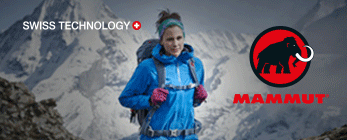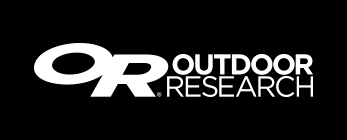GPT27H - Lago Palena
|
|
|
| |||||||||||||||||||||||||||||||||||||||||||||||||||||
Recent Alerts and Suggestions
- 2023 January There was a fire in Valle Tigre but it was up on the mountain & had no effect on the RR which is in the valley on a road.
Season Section Logs
- 2023-Mar-10 to 2023-Mar-14 / 4 days / Hiking / SOBO / RR / Martin & Helena
Quite challenging section, especially in cold and rainy days we had. The trail around Lago Palena is not very well maintained and hundreds of fallen trees are making hiking there pretty difficult. Expect rather more hiking hours to finish the section than what is in manual.
After some road walking from Palena we took the trail in western valley that 2 arrieros confirmed to be in good condition (but they said the same about the whole trail to Lago Verde). Trail is easy to follow, but with quite demanding fords if the conditions are not good. Especially the double crossing of Rio Azul after km 30 gave us hard time, caused mainly by our bad judgment - after light but all afternoon rain we tried to cross the river for the first time, not so far from the official trail, but more on the right, downstream. The current was not that strong, but water was above our waist, and slippery stones made it difficult to move with enough stability. We made it to the other side, but couldn’t find a suitable spot for the second crossing where the water was even deeper. Fording rivers one by one didn’t look safe because of a strong current in the first one, so we tried to return, but the water moved even higher making the ford too dangerous, so we had to stay and camp in between. In the morning we woke up to a sunny day and forded without problem. We met settler from the last puesto before ascent and he told us camping there is possible.
We didn’t have any problem with the rest of the way to the lake, but from there it becomes difficult to continue because of all the fallen trees. Often there is a visible way around, but sometimes you have to improvise and even go over. Expect slow pace. Refuge km 45.7 is not there. We camped at km 48.3 where is a big field without trees. CONAF refuges are there, possible to stay inside, but we would be careful with mice. Fords section from km 56 had just a little of water - no problem. Trail around lake / Rio Claro from km 62 will take you a few times to the water close to the shore, but nothing difficult. We made the last ford at km 62.9 in the widest point, where the water was calm, aprox. to our waist, and with quite stable surface from some vegetation which was safe to walk on.
We continued again very slowly on sometimes very wet and muddy trail. Following fords were not a problem for us, even when the water was fast, it was not above our knees. We camped around km 70 in the forrest where we didn’t feel completely comfortable, but with favorable wind forecast we decided to stay. Refugio km 75.5 is standing, can provide a good shelter in bad weather conditions. The rest of the trail was without any problem, especially the last 20 kms where you join a MR leading to Lago Verde. We finished this section very exhausted and found it to be really a tough one. Good to count with more days / food because of sometimes slow progress and possibly difficult river crossings.
Contact: @martin_hanzelka @helenneka
- 2023 21 Feb 4 days RR NOBO Frank
20KM on small road from Lago Verde, then you reach a settler's house. Go round the house, handrailing a wooden fence. RR goes in on a small track, a bit overgrown with lots of fallen trees & muddy most of the way to Lago Palena so it's slow going. The crux crossing is the first one on Rio Claro/Quinto NOBO. If you can cross it all crossings should be OK. It was thigh deep when I crossed, late in season & weather had been dry. There is a small hut just after the crossing. Continued to second crossing of Rio Claro & camped there (a long day) On day 2 reached the CONAF huts. They are partly built & look abandoned. Continued to Lago Palena & camped on the shore. There is a campsite/refuge marked on the track file above the lake on a rock outcrop, couldn't find it & no trail to it. Best to camp at the lake.
Continuing around Lago Palena in about 2 hours you start to climb to a pass on RR & the trail improves. I did not see any sign of a trail continuing round the lake on the optional route towards Valle California, it looks like very slow & rough going. Towards the pass you are above treeline. The double crossing of Rio Azul was easy. I tried staying on the near bank but there are thorn bushes blocking the route so you do need to cross the river twice. Camped just before the road & walked out easily on dirt road to Palena on day 4. The
The RR is open. The fire in Valle Tigre was up on the mountain & had no effect on the RR which is in the valley on a road. The crux ford is the first one on Rio Claro which you can reach in 1 long day NOBO. It was a little under waist deep when I crossed. 4 more fords on Rio Claro & 4 on Rio Azul, all knee deep in late February. From Lago Verde there is a jeep track for 19KM, then slow going on a horse trail with a lot of fallen trees for about 40KM to Lago Palena. Average speed 2KMPH on the horse trail. As you climb to pass 1390M the trail is good & is mostly good all the way to the road in Valle Tigre.
- GPT27H Option 3 / Lago Rosselot
Dates: 2021-Dec-08 and 09
Direction: Circuit
Participants: Meylin Elisabeth Ubilla González and Jan Dudeck
This scenic lake is located 8 km east of La Junta and certainly worth a visit in good weather when being in the area with a packraft.
The entire circuit on water is about 45 km long and best paddled in two days. Several beaches permit camping.
A public road provides easy access. At the end of the public road are several camp sites.
The predominant wind is southbound on the southern end of the lake and appears to be northbound on the northern end of the lake.
The full circuit is best paddled in two days.
- Martin Lizondo / 8 to 14-Jan-2020 / Hiking Southbound
Río Claro/Quinto currently impossible to cross. Recommended time: February after some days with no or little rain. Best hike northbound to cross this river at the beginning of the traverse. See also log for further recommendations.
- Martin Lizondo / 8 to 14-Jan-2020 / Hiking Southbound
Summary: lot of snow, demanding river crossings, Río Claro/Quinto impossible to cross. Recommended time: February. Hike northbound.
According to settlers from the Azul valley, the regular route isn’t used by horses and cattle, because of a recent land slide. They recommended me to take the alternative pass to Lago Palena, which is the regular packrafting route.
The packrafting route was very well marked. Hard river fording of Estero Matrera (43º 47' 18,67" S, 71º 47' 4,28" O ) Added difficulty was from the fact that I found a lot of fresh knee level snow!
Down at the lake, there’s a carabineros post, which is the last human presence in the area. From that point starts a pretty overground trail that goes to Punta Lopez. Very steepy and risky. The track isn’t recorded in the GPT files (Jan-2020), so ask in the Facebook group (https://www.facebook.com/groups/222224388283455/?ref=share).
From Punta Lopez ( 43º 53' 23,16" S, 71º 52' 53,65" O ) the trail is better maintained and much more visible. The refuges of Conaf are empty with no human presence ( 43º 55' 24,16" S, 71º 49' 10,13" O ) . From that point the river crossing becomes very frequent. Expect to ford many times per hour. The path also gets into the water of Lago Quinto.
The fording of Río Claro Solar / Rio Quinto was imposible at this date, so I had to turn all way back to Palena ( 44º 1' 46,21" S, 71º 50' 15,14" O ).
Now (15-Jan-2020) it snowed at the mountains again, so rivers may be impossible to ford. From that reason I consider February to be the best time to hike this section, better going northbound, in order to ford Río Claro/Quinto as soon as possible.
Summary Table
| GPT27H: Lago Palena | Hiking | Packrafting | |||||
| Group | F: Sector Palena | Total | 101.2 km | 32 h | 91.3 km | 29 h | |
| Region | Chile: Los Lagos (X) & Aysén (XI) | Trails (TL) | 66.5 km | 65.7% | 49.4 km | 54.1% | |
| Start | Palena | Minor Roads (MR) | 31.1 km | 30.7% | 31.1 km | 34.1% | |
| Finish | Lago Verde | Primary Roads (PR) | - | - | - | - | |
| Status | Published & Verified | Cross-Country (CC) | 3.6 km | 3.5% | 3.3 km | 3.7% | |
| Traversable | Feb - Mar (Maybe: Dec, Jan, Apr) | Bush-Bashing (BB) | - | - | 0.2 km | 0.3% | |
| Packraft | Very Useful | Ferry (FY) | - | - | - | - | |
| Connects to | GPT26, GPT27P, GPT28H | Investigation (I) | - | - | - | - | |
| Options | 137 km (3 Options & Variants) | Exploration (EXP) | - | - | - | - | |
| Hiking | Packrafting | Total on Water | 7.2 km | 7.9% | |||
| Attraction | 3 (of 5) | 3 (of 5) | River (RI) | - | - | ||
| Difficulty | 4 (of 5) | 4 (of 5) | Lake (LK) | 7.2 km | 7.9% | ||
| Direction | Both ↓↑ | Both ↓↑ | Fjord (FJ) | - | - | ||
| Comment | - | ||||||
| Character | Valdivian Rain Forest, Farmland, Settlers, Unpeopled Areas, Lake Packrafting | ||||||
| Challenges | Demanding River Fords, Exposure to Elements, Bush Bashing, Demanding Navigation | ||||||
Satellite Image Map
Elevation Profile
Elevation Profile of Regular Hiking Route
Elevation Profile of Regular Packrafting Route
[[File:|frame|center|Elevation Profile of Regular Hiking Route (2019)]]







